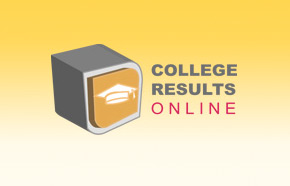Common Application (Common App, CommonApp.org) Essay Prompt https://www.commonapp.org/CommonApp/Docs/DownloadForms/2013/2013AppFY_download.pdf
Most colleges require an essay to be included in the application. The essay is your chance to stand out and shine. Your essay should be an extension of your application while supporting your extracurricular achievements and outline your intended major.
Regardless of the essay prompt the main factor is the underlining question, “tell us about you”, “who are you?”.
A great essay outlines your character, personality and personal traits. It should follow the word count requirements. The common application essay requirements are 250 – 500 words. Do not write an essay that is 249 words and do not write an essay that is 501 words.
An essay that is less than the minimum or more than the maximum shows that a student cannot follow directions. Your application and essay should show your best side. Part of that best side includes following directions.
The essay should point out specific characteristics that the college should know about you.
In essence, the essay should be the equivalent of a sales letter “selling” your best side, an “I’m awesome because of X”.
A great essay cannot be written in one sitting. It must be written, re-written and read to correct all punctuation, spelling and grammatical errors. The context of a great essay is something that should be pondered and considered before committing to a final draft.
Choose one of the essay prompts and start your draft.
A popular topic for the essay is: Who influenced you and how did it affect you. Many students choose this topic and typically write about a family member that they admire. Do not write an essay about how awesome your grandparent is because of this or that but write an essay that says my grandparent is awesome and then I did X. The essay should be about YOU not your grandparent. The college wants to admit you not your grandparent.
A well written essay can answer multiple prompts. While not every college uses the Common App, the essay prompts will most likely be similar. You may have to tweak your essay a little bit at the beginning or end of the essay to answer the prompt. (You can use the Common App's essay prompts and start early writing your essay. )
On that point, verify that your essay actually answers the prompt you selected.
One last point, read the essay out loud. If it sounds okay then it probably is. If the essay sounds funny, there are probably errors that need to be corrected.
From Common App website:
Please write an essay of 250 – 500 words on a topic of your choice or on one of the options listed below, and attach it to your application before submission. Please indicate your topic by checking the appropriate box. This personal essay helps us become acquainted with you as a person and student, apart from courses, grades, test scores, and other objective data. It will also demonstrate your ability to organize your thoughts and express yourself. NOTE: Your Common Application essay should be the same for all colleges. Do not customize it in any way for individual colleges. Colleges that want customized essay responses will ask for them on a supplement form.
- Evaluate a significant experience, achievement, risk you have taken, or ethical dilemma you have faced and its impact on you.
- Discuss some issue of personal, local, national, or international concern and its importance to you.
- Indicate a person who has had a significant influence on you, and describe that influence.
- Describe a character in fiction, a historical figure, or a creative work (as in art, music, science, etc.) that has had an influence on you, and explain that influence.
- A range of academic interests, personal perspectives, and life experiences adds much to the educational mix. Given your personal background, describe an experience that illustrates what you would bring to the diversity in a college community or an encounter that demonstrated the importance of diversity to you.
- Topic of your choice.
Need help with writing an incredible essay, we can help. Contact us.





